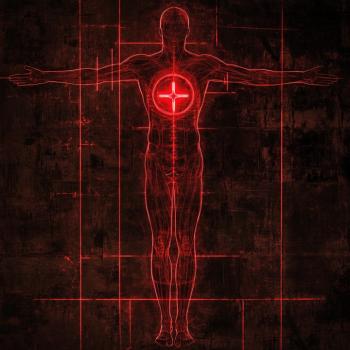Editors' Note: This article is part of the Patheos Public Square on Faith and the Election. Read other perspectives here.
Faith inevitably shapes politics. It cannot be otherwise, as faith speaks to ultimate questions — the character and will of God, the purpose of life, the nature of man, the means of justice, and the path to human flourishing. All have broad and deep political implications and consequences. But perhaps one of the most important roles our faith plays in this election season is to remind us of the limits of politics.
The Christian faith shows these limits by revealing the flaws of human nature. The Christian understanding of man as made in the image of God, and thus possessing an intrinsic dignity and worth — while also marked by an innate inclination toward selfishness and corruption — offers both hope and realism about the capacity of government.
The flaws of human nature — the doctrine of original sin — affect not only the individual, but also a nation. It is the reason utopianism always fails; leaders with unchecked power grow more corrupt, and citizens will typically push for their self-interest, even when it runs obviously counter to the common good. At the same time, the Christian faith also asserts that being made in God's image, mankind has the potential to recognize, love, and work toward what is right and just. As theologian Reinhold Niebuhr argued, "Man's capacity for justice makes democracy possible; but man's inclination to injustice makes democracy necessary."
Niebuhr also argued that this Christian understanding of human nature meant that politics should be understood not in terms of purity or perfection, but as the search for "proximate solutions to insoluble problems."
The hard work of finding proximate solutions to complex problems requires compromise, rather than ideological purity, and leaders with humility, rather than self-aggrandizement. It requires a weighing of competing claims, a concern with means as well as ends; and seeks procedural justice in addition to lofty ideals.
Such a reminder is always helpful, but perhaps particularly so in this election, where wonky discussions of policy and platform differences are largely ignored, replaced by invective, slurs, threats, and boasts. Just last week, one of the presidential nominees promised in a scripted speech: "Politicians have used you and stolen your votes. They have given you nothing. I will give you everything. I will give you what you've been looking for fifty years. I'm the only one." [emphasis added]
Faith reminds us that placing hope in politics or politicians will inevitably result in disappointment and disillusionment. Even the best of leaders are finite and flawed. (Those who promise to "give you everything" are dishonest demagogues.) Law-making has been compared to sausage-making. Implementation and enforcement is often discriminatory and error-riddled.
Perhaps part of the reason for growing political cynicism is that too much hope has been (mis)placed in government. Political decisions can incentivize business development; they cannot instill energy and initiative. They can eliminate the marriage penalty in the tax code; they cannot cultivate stronger, more loving marital relationships. They can restrict a supply (whether of drugs, alcohol, abortion services, etc.), but not eliminate the demand. The moral, cultural, and spiritual problems of loneliness, alienation, selfishness, irresponsibility, despair, etc. often manifest as social and political issues — addiction, crime, family breakdown, indebtedness, etc. — but cannot be ultimately solved at a political level. As Samuel Johnson once said, "How small of all that human hearts endure/the part which laws or kings can cause or cure."
This is not to say that politics is unimportant. Passage of the Civil Rights Act accelerated and catalyzed vital cultural changes far beyond the equal legal protections it extended to minorities. Policy changes around law enforcement and crime fighting have contributed to an extraordinary decrease in violent crime over the past two decades. Political decisions can perpetrate injustice, or open up opportunities for flourishing. Politicians can encourage "the better angels of our nature," or increase their own support and fundraising haul by fomenting xenophobia and division. What a society chooses to protect, incentivize, or prohibit can send a profound moral message. And one of the many ways we can obey the biblical injunction to love one's neighbor is by working to create and sustain, through politics and other means, conditions which lead to human freedom and flourishing.
But even the best of leaders and political systems cannot, in a fallen world, achieve perfect justice, or give us the safety, security, and community we crave. Perhaps one of the most important roles our faith plays in this strange and distressing election season is to remind us that our greatest hopes and needs — for love, connection, meaning, redemption, forgiveness, and purpose — cannot be met by politics or political leaders, but only by and through the One whose kingdom is not of this world.
6/8/2016 4:00:00 AM




